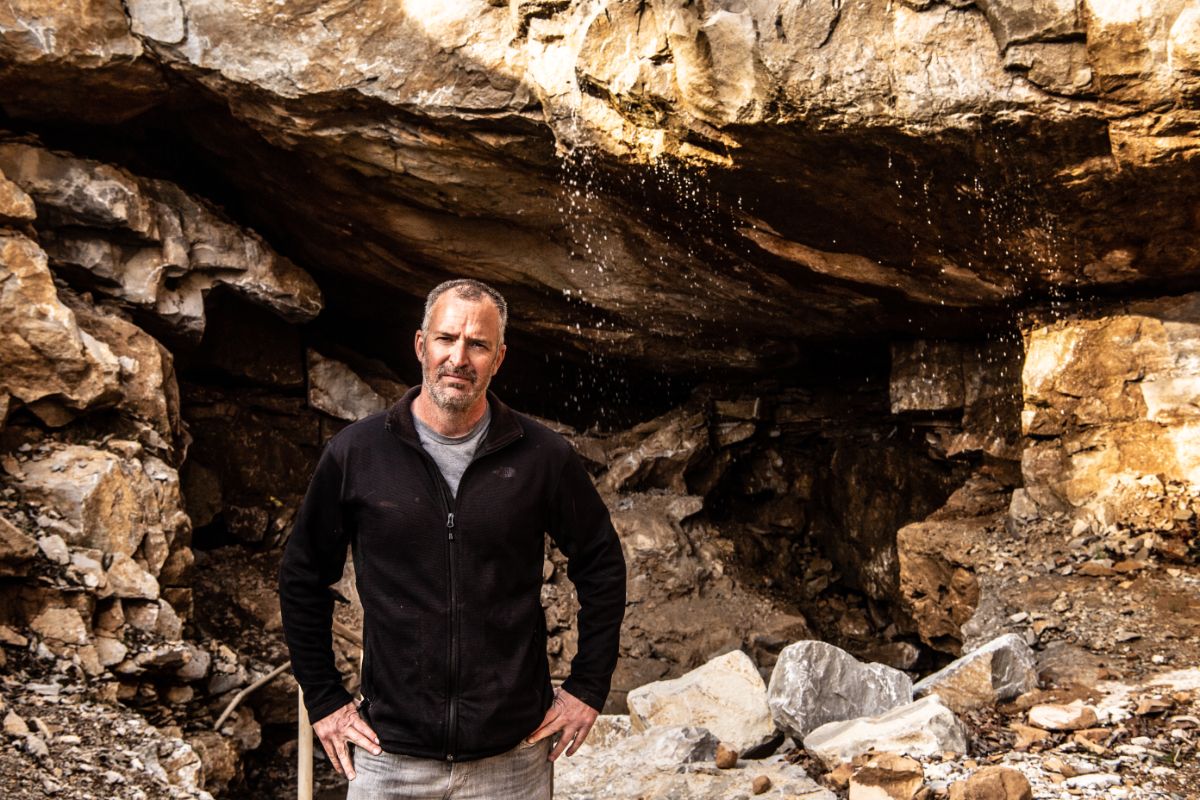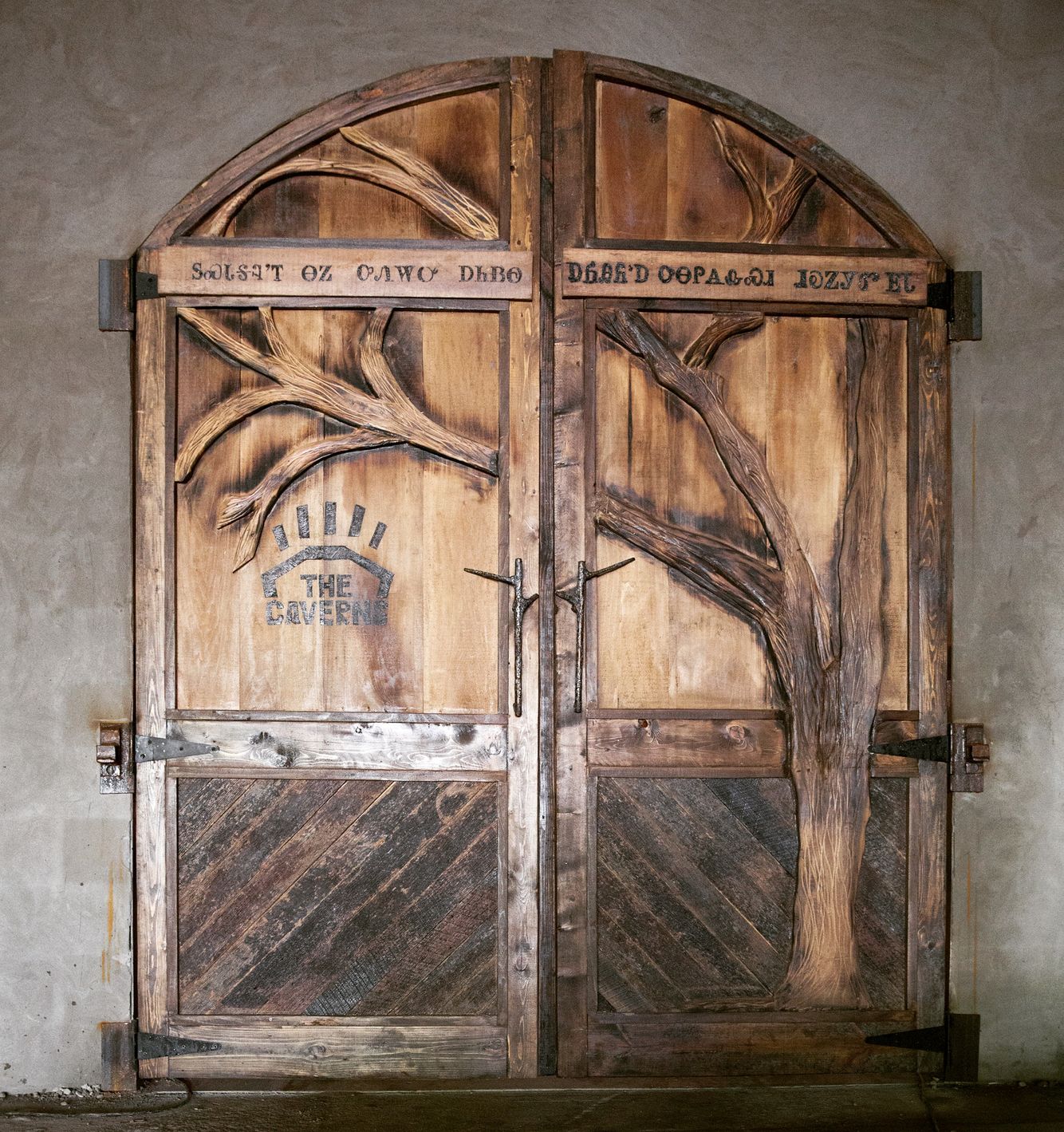To celebrate the release of Caveman Chronicles, an Amazon best-selling memoir and mythic musical memoir already beloved by readers, Todd Mayo has crafted a compelling series of essays. These essays provide a glimpse into the rich narratives woven throughout the memoir, offering readers a taste of the remarkable stories that chronicle Mayo's journey.

From Conman to Caveman
By Todd Mayo
Before I became aware of what brought people together, I could only see what drove them apart.
“What church do you go to? Who did you vote for? And what do you think about OJ? Talk amongst yourselves!”
This was my line in college at the University of Tennessee in the early 90’s. It was an admittedly impish thing to do: take a group of folks all hanging out and having good ole college fun and lob a few Molotov cocktails of controversy into the situation. It wasn’t youthful collegiate debate I was after, but a perverse thrill to see how quickly friends could become foes. I was a conman, selling fear to satisfy my own electric, visceral, and adrenalized currents of opinion and reaction. While my inner world recognized those charged opinions, in seconds they drove the group into Us. vs. Them.
These days, I labor to bring people together. From the darkest depths of separation, I find the pillars of union—the foundational forces that make us vulnerable, united, larger than our silly opinions. While I used to be a conman, I now consider myself a caveman. And fear may be something cavemen and con men have in common, but the caveman has what the conman doesn’t: community. I’m the founder of The Caverns, a mythic music venue inside a cave I founded in Grundy County, Tennessee. It’s where I learn what brings folks together, and best I can tell, that’s music.
Music is communal. It intimates sitting around with your fellow Neanderthals by a fire, in a cave, safe, without fear, at home. Music calls us to a place and space where we can be among others, in joy. Now, instead of divisive ammunition, I watch people gather for the things that link us together.

This call for togetherness is even burned into the doors that patrons see just as they enter The Caverns: “ᏓᏣᏓᏄᎸᎩ Ꮎ ᏚᏍᏓᎦᎸ’Ꭲ ᎾᏃ ᎤᏁᎳᏅ ᎠᏂᏴᏫ ᎠᏲᎯᏲ’Ꭰ ᎤᎾᎵᎪᎲᏍᏗ ᏗᎧᏃᎩᏛ ᎬᏓ” a message from, and a recognition of, the Cherokee, one of the Indigenous tribes of Tennessee. The language, conceived by the great Sequoyah, reads “Detsadanilvgi na dusdagalv’I nano unelanv aniyvwi ayohiyo’a unaligohvsdi dikanogidv gvda,” and it translates into English as: “Welcome to The Caverns where the Great Spirit brings all people together through music.”
This togetherness has been challenged in recent years due to politics and the pandemic. In 2017 I was at a concert at Ascend Amphitheater in Nashville, Tennessee, and was struggling with contempt—contempt for family members and friends whom I knew who voted differently than I did. Contempt is a nasty little emotion. It amplifies the tune of “self vs. the other” into “the all-knowing self vs contemptible other.” The antidote to contempt is compassion. I knew that but struggled to reconcile that knowledge with my reactive emotions and reductive logic – the fearful side of the caveman.
The band I went to see that night was Widespread Panic. Everyone was together having a great time—"Aint life Grand!” as they say and sing. Widespread Panic has a fanbase that could be roughly considered half hippie/half frat dude—political opposites. I had a thought that night that became epiphanous: “What if everyone had a T or an H on their forehead based on whom they voted for” Half the folks might not even look at the other half, much less talk to them. And yet, here we all were, by the grace of music.
This idea stuck with me, and it evolved. By 2020, in the thick of the pandemic when a simple gathering of a dozen people over a meal felt revolutionary, the idea became what it was destined to be: a television series called Ear to the Common Ground. The premise was to bring together eight fans of a musical artist. The fans, who were on all sides of the political spectrum, would share a potluck meal in a barn and discuss difficult issues—abortion, gun control, race, education, etc. There would be just one rule: they must embrace compassion over contempt.
We taped a pilot episode in the fall of 2020 and then produced a 12-episode series for PBS in the spring of 2022.
Producing this series gave me a deep and wide glimpse into the nuanced reality that is truer than what we see in the media, social or otherwise. The series featured the full spectrum of diversity: geography, race, religion, sexual orientation, age, gender, income, you name it. Hundreds of volunteers from all over the country participated and brought their perspectives and lived experiences. The series showed us subtle realities because people listened with compassion. You can’t get closer to God—or however you choose to see ethereal power—than through the simple act of sharing a meal and listening to one another.
From my caveman perspective, our natural fear of the other may have saved us when we were Neanderthals, but that fear is exploited in our contemporary context, both obviously and subtly. Ear to the Common Ground was a case study in compassionate dialogue, without fear. It was an elixir for the reactionary and intolerant emotions that I feel personally, and we all feel collectively. At the end of each episode, the artist whose music brought everyone together serves dessert and sings a few songs. That ending, with the combination of music and community, made that dialogue transformative.
Writing this, I’m reminded of Phil Hartman who brought the “Unfrozen Caveman Lawyer” to life on SNL. Comedy – another way to bring people together, and to expose the truth of our lived experience. Unfrozen Caveman Lawyer lived two lives, that of a caveman frozen in time, “confused and frightened” by the modern world, and the other, a thawed-out caveman with a law degree. In a mirror image of my own journey, He was a caveman and became a conman. He weaponized his archaic, cave fear and turned it inside out against the modern world as a huckster lawyer and divisive politician.
We are all victims of a long con that prioritizes and exploits our caveman fear over our capacity for common ground–that Neanderthal intimacy around fire. The con continues to want from us, not for us. But from my view, we are evolving. If you want to feel this for yourself, do one thing: host a dinner party for several people who don’t necessarily look or talk or worship or think like you do, have everyone bring a dish, and celebrate the diversity of thought that people bring to the table. Watch what happens. As people share their minds, they end up sharing more of their hearts than anything else. Underneath the mind—or, as I think of it, underground—are the roots we share, the common ground, the compassion.
While we may have inherited the fear that drives us apart, we also inherited the communal tradition. Like Phil Hartman’s caveman, this world sometimes frightens and confuses me, but I hold onto that common ground truth.
